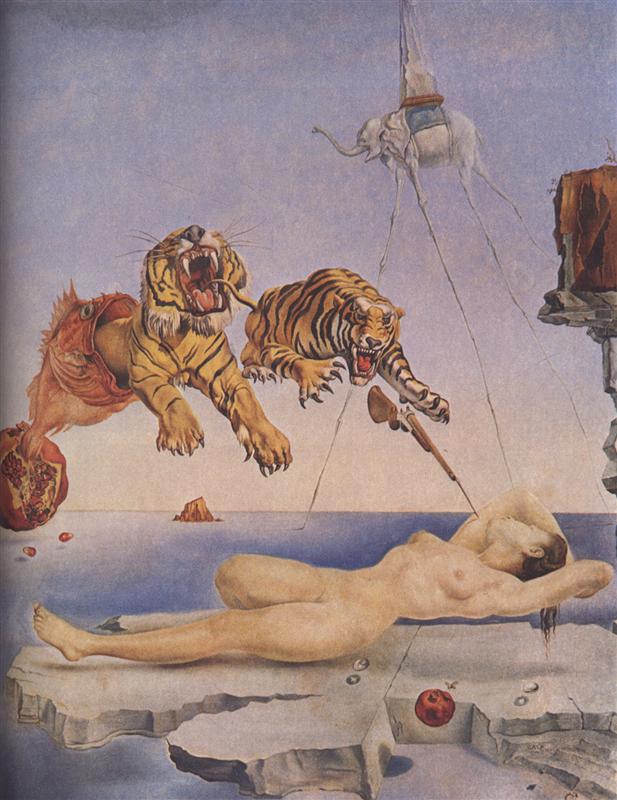Dali – “The Great Masturbator”
This is a self-portrait. The head of Salvador Dali in the painting is depicted in the form of a rock near his house, the artist used this image in works dated later 1929. In the painting, Dali portrayed his fear and disgust that he felt for sex. El Salvador blamed his father in part for…









